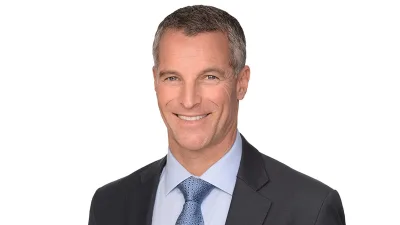To scale or not to scale a growing advice practice?


Two financial advisers debate the difficulties and benefits of scaling up and hiring associate staff as a smaller advice business.
As the cost to deliver advice climbs higher, many advisers are rethinking their business efficiencies and cost-effectiveness.
In particular, scaling up as a boutique advice firm can present advantages, such as servicing a greater number of clients, but also requires additional time and expenses.
Money Management spoke with two advisers running their own advice practice who offered differing perspectives on whether this is achievable as a smaller business.
Onboarding challenges and costs
After working as a financial planner at RI Advice Group for over three years, Ron Pratap founded his own Sydney-based practice, RP Wealth Management, in 2016 with his business partner Sedat Papagan.
Alongside the two advisers, the firm has a financial planning assistant and three back-office support staff.
Pratap said RP Wealth Management has been considering taking on junior or associate advisers to assist himself and his business partner but feels there are onboarding challenges.
“We are looking at hiring a new financial adviser or junior that we can train up, but the cost to get an adviser is $75,000 to $80,000 minimum if they are degree-qualified. That’s not them doing their professional year yet, that’s just them coming out of uni expecting this salary,” he said.
With many potential candidates having a general finance background, some see working in the advice sector as one of several possible career options rather than being deeply passionate about advice itself, Pratap explained.
“We don’t want to put that investment into someone if it might be something they like or they’ll just move on to something else that might be more suited for them. That’s where a lot of advisers at the moment are a little bit hesitant.
“For us, we’re trying to look at our processes and automatisation because if we can’t get an adviser, what can we do to stay on top of things and still take on new clients? We’ve got no shortage of getting new leads. It’s just being able to service everyone, from existing clients to new clients, while continuing to do the marketing and everything at the same time.”
Providing a depth of support
Money Management also spoke with Andrew Saikal-Skea, who moved from Scotland to Australia in 2013 and founded his own Canberra-based practice in 2021 after working in advice at Aware Super for four years.
Reflecting on the process of starting from scratch with zero clients, Saikal-Skea described it as “jumping out of a plane and hoping that your parachute is going to work”.
“It was very intense, but I very quickly found my feet. I brought on an associate after about nine months and then we hired a senior client service officer last year. This year we’ve just brought on a second associate,” he said.
The founder had a different experience to Pratap, describing the initial challenges but eventual benefits of scaling up his business.
“The hardest part is when you bring in someone new and it takes them a few months before they can really give enough productivity to cover their costs. You then have this period of time where you’re buying technology and your software costs have increased. So you added overheads and you’ve added a lump sum in tech to bring them in, then it takes a few months to get that return,” Saikal-Skea explained.
However, he said if firms delay hiring associate staff, they could find themselves struggling to manage the workload which can place everyone under more strain.
“You should hire people just before you need them, which is really tricky. But the sooner you can go from being a single-adviser practice to a larger firm, you get to a far more efficient and better place. By having the depth of support from the team, our clients get a much better experience than if it was just me.”
Hiring two associates has allowed Saikal-Skea to spend more time with clients working on strategies, rather than the daily administrative work.
“That has been a really key contributor to how fast we’ve grown in the firm; being able to focus more of my time on that,” he said.
Recommended for you
The popularity of ETFs, which are approaching $200 billion in Australia, is a potential threat to the advice landscape if consumers opt to invest directly, according to this senior partner.
A former AMP financial adviser has urged advisers in the BOLR class action against AMP to object to the “unfair and unreasonable” $100 million settlement sum as the objection deadline approaches on 22 May.
Two Victoria-based financial advice practices have merged and rebranded as Forbes Fava Saville Financial Planning, as the firm realises the benefits of added scale.
The Financial Services and Credit Panel has made its latest ruling over a case involving an incorrect Statement of Advice.
















Add new comment